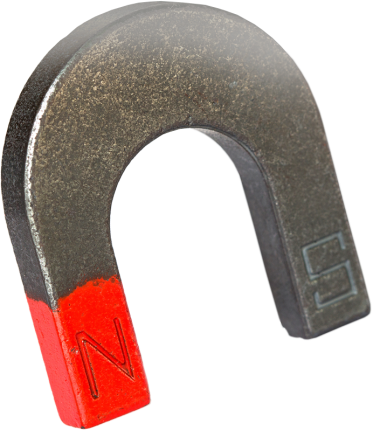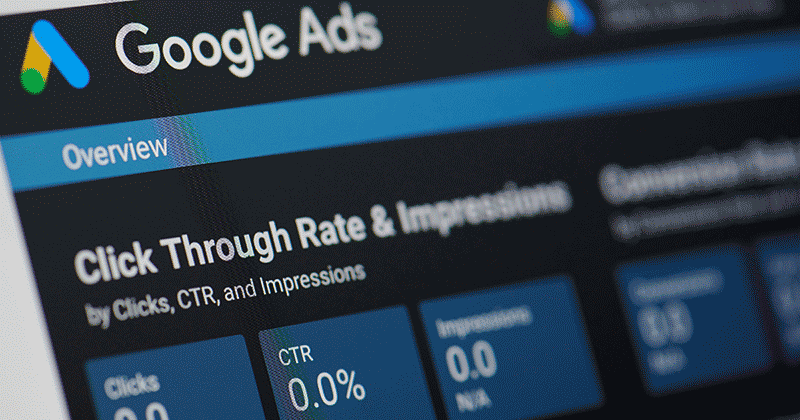Keynote: How Much Search is Enough?
Can I tell you how much I appreciate not having to do a keynote first thing in the morning? So much. Instead of an 8 am call for blogging, we’re sitting down for our opening keynote after lunch, which means I’m actually awake for once.
I’m going to need to be alert to keep up with Robert Murray (iProspect), Aaron Goldman (Resolution Media), Steven Kaufman (Digitas) and Bob Tripathi (Discover Financial Services). Kevin Ryan (SES) and Anne Kennedy (Beyond Ink) moderate this roundtable.
Why is it so dark in here?
Kevin first announces some winners for the SES Awards. Congrats to the winners!
The panelists introduce themselves. From left to right: Aaron Goldman, Steven Kaufman, Robert Murray and Bob Tripathi. I say this not for you, but for me. Inevitably I will screw up who is who.
Kevin: what’s the best plan? How are you integrating digital strategies? I hear that people say they are doing it but the clients say that they aren’t. What’s the marketing metrics and mix?
Bob: What I really see is that TV is still dominant but search and online is in there at 12 percent. It’s grown 100 percent. [Goes through an example of an intregated ad campaign] Ad creative supporting TV, Brand building ads, Landing pages supporting a TV ad, a microsite supporting the TV spot.
Kevin: Is that pretty consistent with how the campaigns come together?
Robert: I think this is a good example. We just did a study and less than half of marketers are integrating search with other campaigns so this is bleeding edge stuff.
Kevin: How do you stay on budget?
Steven I think it varies by braind by lclient byu the digital nature of the campaign. Google is getting aggressive about pushing youtube, about getting people to upload their TV creatives. The brands are getting savvy that their content is going to live in a lot more places than just on TV.
Ultimately search is where people go to find things.
Aaron: I think one of the things that we need to recognize is that paid search is different than natural search. The budget for natural search isn’t usually marketing money. It’s IT money, Web site development money. We’re starting to see that budget come from creative side now.
Kevin: What sort of things?
Aaron: One of our clients is Gatorade. They built a microsite to support their current ad initiative. We were in there even before the wire frame stage to get them to be more search friendly. We tried, unsuccessfully, to coach them out of Flash. Two years ago, no one was thinking search that early in the design process. On the Internet, your shelf life is indefinite.
Kevin: What do you attribute the changes to? Is it just awareness of search?
Robert: I would say the efficiency of search is really the factor. People are noticing how it returns value.
Bob: It used to be a hard sell because why would they take the money out of TV? But now they’re seeing it’s a much better channel.
Aaron: I think a lot of it is education. Shows like this that are teaching CEOs and CMOs that it’s worth it.
Kevin: Where is the money coming from? Where does holistic start?
Anne: Where it starts is by using measurement. Search is the one medium that’s truly accountable and trackable. What I’m wondering is when you’re looking around companies and agencies, is it being used and can it be used better?
Robert: He has a client who is very advanced. What they will do is see how they can do the direct capture stuff first and then work on demand generation stuff. They actually budget for the media cost in the long term. Costs are going up and you have forecast for it.
Steven: Same sort of thing, there’s the demand side of the business and the branding/generation side of the business and there’s opportunities in both. Google needs to work on selling on a CPM basis for the branding side.
Aaron: We’re starting to use search to justify traditional media budgets. We’re matching up query volume to TV broadcast. When something goes national we can see the search spike and that way we’re able to show the value in TV advertising. That accountability wasn’t there before.
Kevin: I want to go back to the search needing to do better of selling branding. Yahoo has searchlight awards. They launched campaigns specifically to spend money and hoped people wouldn’t click on the ads.
Steven: If you search for Special K on Yahoo, there’s a special branded ad. That’s what I mean by Google needs to do a better job. It needs to be more than 70 characters to say what you want.
Aaron: Even text only there’s studies from GYM that show that visitors do end up with a brand lift just from viewing text. We need to do a better job of capitalizing on that and the engines need to advertise that to the agencies more.
Robert: People assume that the brands that show up high in the results are the brands that are top in their field.
Steven: It’s a problem because what we want is the branding not the clicks.
[Kevin takes a second to ask about how lunch was and the silence is telling… and now onto more discussion]
Robert: The most advanced marketers are the ones who invest the incremental dollar provided they can prove ROI metrics. The thing that may drive proportional spend depends on where your market is in its life spend. If you’re in a growing category, you’re going to see a different lift than one that you’ve been doing a while.
Anne: there was a study that came out in June that baby boomers aren’t really interested in doing business online as a whole, if they see a web site mentioned in regular press some extraordinary number like 90 percent will visit the site and seventy five percent will convert.
Robert: We did a very similar study, two thirds went to do the search and 37 percent actually purchased from that brand.
Steven: You can’t make people search more by spending more on search but you can make them search more by spending more on other media.
Aaron: Digital marketing doesn’t work like traditional marketing, it’s not run it at the beginning of the year and take focus groups at the end. People are getting more flexible, making changes after a couple months, seeing what works and moving dollars around.
Robert: One thing I’d add is that clients should have separate testing budgets as well so you’re not interrupting the core campaign.
Steven: You’re not necessarily going to take money out of TV to search. Brand building through TV really still works.
Kevin: What about resources on the agency side? It seems like they’re still morbidly obese with staff on staff on staff and then you go to the online side and it’s seven guys versus what 200 people do on the traditional side. There was an agency that laid off 200 traditional people and hired 20 online guys. Are we seeing agencies becoming leaner?
Steven: We’re seeing them becoming leaner because they have to. They’re becoming more accountable for spend and clients are asking for more for less.
Aaron: We’re seeing the larger guys diffuse their online teams into the rest of the teams. There’s not an online team anymore.
Kevin: Are they /really/ coming together? Or are they just saying they are?
Aaron: They’re really doing it. We’re making progress.
Kevin: They think they’re better than us. Traditional people really do. [Kevin rants a little. Hee.]
Steven: I think they’re getting better. The TV guides can now say look TV good, search shows TV good. So they’re embracing it a little more.
Robert: 8 years ago it was an education process but nowadays people are really starting to get into SEO and understand how important it is and understanding the longer term yield.
Kevin: Is that the blended search integration? Is it less ads? What’s fueling that interest?
Robert: I would say the driver is the increasing cost of all other media. 6 out of ten people are going to click the organic, that’s a big driver. And yes, blended is changing click through rates.
Bob: I think people are realizing the organic side goes much further.
Takeaways?
Steven: Tip one: Recognize the outcome that you’re hoping to achieve and measure everything that you’re doing.
Robert: Recognize the difference between demand capture and demand generation, know your customer’s lifetime value and build in a test budget.
Bob: Educate your organizations. Maximize your spend, and figure out how you can take it further on the web
Aaron: Be open and be fluid with your budget allocation. Don’t just stick it one place and leave it there. From the consumer standpoint it’s all fluid so you have to mirror that with your budgets too.
Kevin: For a lot of people search is the only advertising they do. They don’t have money for TV, they don’t have money for the rest of this.
Q&A
My companies don’t have any marketing budget, they just brought me on and they don’t understand ANY of the marketing side. What’s my best way to educate them?
Steven: Find a new client. [Hee!] It doesn’t have to be that complex. Google makes it simple. Start small, keep it simple, show them results from other clients. Don’t overcomplicate it.
Kevin: Eat the cake one piece at time.
Robert: You don’t have to start big, just start. SEMPO has a lot of great resources. But you have to start somewhere. Start small and build.
Kevin: What are the some of things that you can do to start small and get small victories?
Robert: You have to start with Google I would say. PPC is good to start with. SEO is not going to yield short term results, put it on the back burner for now.
Who is going to control the display ads budget?
Steven: ON the content side it’s probably mistakenly viewed as PPC and held to the same standard. It can’t do that. The traditional agencies aren’t going to understand that and the digital agencies are going to have the advantage.
Robert: Google and Yahoos are going to provide tools for that and that’s going to put the people in this room into the drivers seat on those campaigns.
If the Yahoo/Google deal goes through, what effect will it have?
Panelists: [silence reigns]
Kevin: They’re screwed, thanks for coming everybody!
Aaron: I think there are two schools of thought: They’re going to be more open and more transparent. And they’re going to have more scale. All the individual segments are going to be more
Kevin: Okay, just answer yes or no. Hypothetically: Do you still have a search agency when all your traffic is coming from 90 percent of one engine?
Steven: No.
Kevin: Thanks everybody!

LEAVE A REPLY









